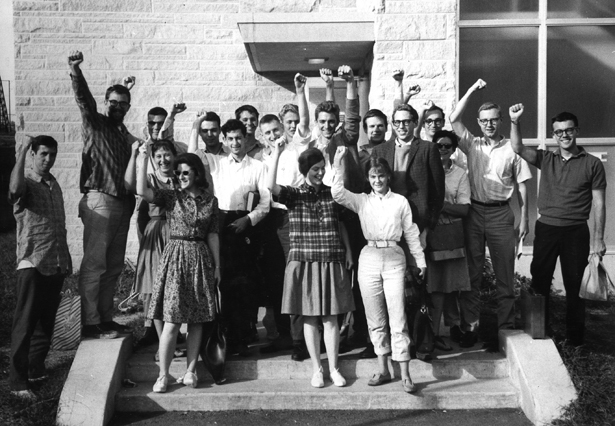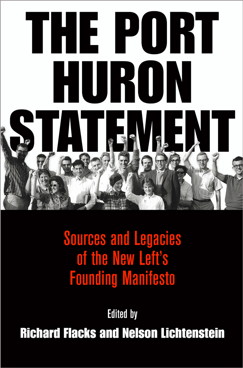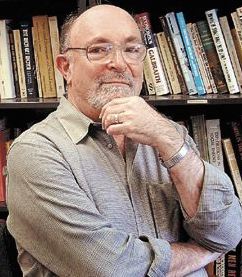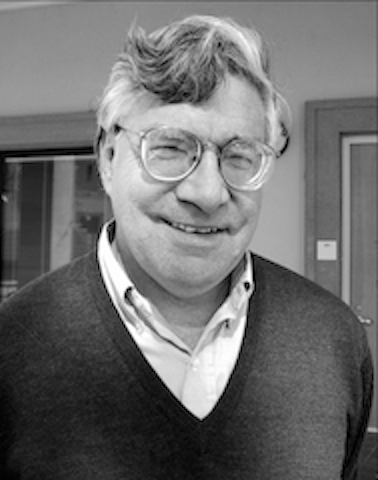
Participatory Democracy



In today’s social media culture, in which relevance is measured in minutes, a 25,000-word document that continues to resonate more than 50 years after it was written is nothing short of amazing. And yet the Port Huron Statement, the manifesto of the New Left issued in 1962 by members of Students for a Democratic Society (SDS), still echoes with a modern voice.
From Occupy Wall Street to the Arab Spring, the ideals of the statement — particularly “participatory democracy” — continue to inform popular movements across the world. In their new book, “The Port Huron Statement: Sources and Legacies of the New Left’s Founding Manifesto” (University of Pennsylvania Press, 2015), UC Santa Barbara professors Richard Flacks and Nelson Lichtenstein take a fresh look at what many consider the most influential document of what came to be called the New Left.
“Although the Port Huron Statement is very much a document of its time, any younger generation can certainly buy into some of the idealism found in it,” said Lichtenstein, MacArthur Foundation Professor of History at UCSB and director of the campus’s Center for the Study of Work, Labor and Democracy.
According to Flacks, a professor emeritus of sociology, the statement was a call to action and a blueprint for liberals and radicals to coalesce for social, economic and political reforms. “One of the political hopes in the statement was that there’d be an emerging coalition of liberal forces — labor, religious liberals, the civil rights movement, academics, and that this would become a more dominant force,” Flacks said.
He was one of more than 50 SDS members who gathered to debate and edit the statement, which was drafted by Tom Hayden, the University of Michigan graduate who would go on to serve 18 years in the California Legislature.
Although the term “participatory democracy” appears just once in the statement (which spelled out a definition of the phrase in several paragraphs), it proved to be the most enduring concept. It was rooted in empowering individuals to participate in all phases of political, social and economic life. “That was a very important contribution then and it has remained a phrase and a way of thinking down to now,” Flacks said. “You’ll see it when people assemble in Cairo, let’s say, or the Occupy movement, people using the phrase ‘participatory democracy.’ And if they don’t use the phrase, it either directly or indirectly flows from that thinking.”
It was also, Lichtenstein noted, a concept that resonated in the more button-down era that came before the Beatles, hippies and the social convulsions of the Vietnam War. “I think that participatory democracy struck a chord at that moment in part because it was a rejection of a kind of more arid, formalist, congressional, industrial-relations democracy, and this was a fresher idea,” he said.
While SDS years later became synonymous with radicalism, the Port Huron Statement was not a product of what might be considered radical today, Lichtenstein continued. “Hayden and the SDS blended idealism and pragmatism in a call for what they saw as achievable change, not fantasies,” he said. “You think of Tom Hayden as the quintessential ’60s radical, but he has some very wonky stuff in there about reforming Congress and reforming the party system. There are many prosaic proposals in there. It’s not ‘down with the system,’ it’s ‘reform the system.’”
According to Flacks and Lichtenstein, the Port Huron Statement lives on in its continued relevance and influence. The world is different, they said, but it’s no less in need of reformers. “We would like this read by a new generation of people who want to be activist intellectuals, certainly,” Lichtenstein said.
“To me, I think it shows that a creative social movement has to be speaking with people in power but at the same time independent and outside of that,” he continued. “If you’re too far out, if you’re just isolated, then you’re just a bunch of anarchists. And if you’re too complicit, you’re inside the box.”



